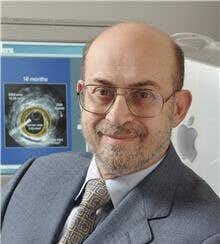
How Do You Control Your Cholesterol?
What causes heart disease? There are a number of risk factors, including cigarette smoking, sedentary lifestyle, high blood pressure, diabetes and others. One well-known risk is high cholesterol. Has your doctor told you that you need to control your cholesterol?
New Guidelines for Cholesterol Control:
The principal cardiologists’ organizations in the US recently updated their guidelines on treating high cholesterol. The American Heart Association and the American College of Cardiology made changes to the recommendations they had issued in 2013. Will the new treatment suggestions change the way you control your cholesterol?
Dr. Steve Nissen of the Cleveland Clinic describes how the guidelines have changed. We discuss who should be taking a statin drug to lower cholesterol and how you would know if your heart attack risk is high enough to warrant medication. Dr. Nissen recommends the Reynolds Risk Calculator. To fill it out, you’ll need to know some information you can get only from blood tests: total cholesterol, HDL cholesterol and high-sensitivity C-reactive protein, a measure of inflammation. The decision of whether or not a medication is needed should be a joint decision by both the patient and the healthcare provider.
In addition, Dr. Nissen tells us why he doesn’t routinely send his patients for calcium coronary scans. You can read about his study on the effects of statin drugs on coronary calcification here.
Join the Conversation:
We invite you to tell us how you control your cholesterol. Do you take a statin drug? Has that worked well for you? We will consider both benefits and possible side effects. Have you found other ways to control your cholesterol? When a statin is not enough, what are your options? Are you taking one of the new PCSK9 inhibitor medications, Repatha or Praluent? You may call 888-472-3366 between 7 and 8 am EST on Saturday, January 5, 2019. Or send us email: radio@peoplespharmacy.com
Dr. Robert DuBroff’s commentary, A Reappraisal of the Lipid Hypothesis, was published in the American Journal of Medicine, September 2018.
This Week’s Guest:
Steven Nissen, MD, is chairman of the Robert and Suzanne Tomsich Department of Cardiovascular Medicine at the Cleveland Clinic. He is the co-author, with Marc Gillinov, MD, of Heart 411: The Only Guide to Heart Health You’ll Ever Need.
Listen to the Podcast:
The podcast of this program will be available the Monday after the broadcast date. The show can be streamed online from this site and podcasts can be downloaded for free. CDs may be purchased at any time after broadcast for $9.99.

